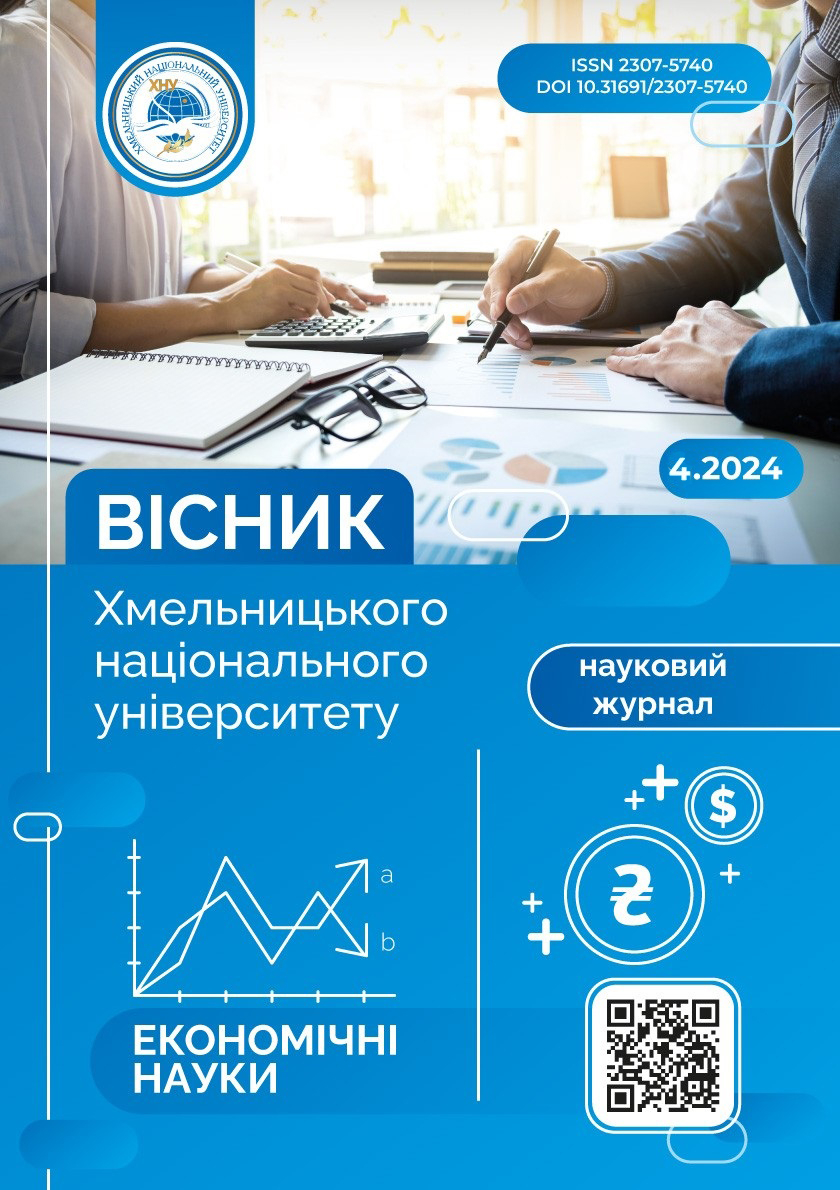INFORMATION SYSTEMS FOR TRANSPORT LOGISTICS IN BUSINESS
DOI:
https://doi.org/10.31891/2307-5740-2024-332-2Keywords:
development, management mechanism, information support, transport logistics, logistics system, freight transportation, entrepreneurial activity, risks, artificial intelligence, Internet of Things, Big DataAbstract
Logistics is an integral part of the economic development of any industry and country. It ensures the formation of effective movement of goods, services and information between producers and consumers. In today's world, the existence of logistics operations is impossible without the use of information technologies that help optimize logistics processes, increase their efficiency and reduce costs associated with transportation. The active pace of development of information technologies makes it possible to achieve further optimization of logistics processes, increase in the volume and speed of global trade. However, an in-depth ongoing analysis of the positive and possible negative consequences of the introduction of modern technologies into the field of logistics is necessary on the way to their development and implementation. Also, the study of the possible mutual integration of existing information systems in logistics and related fields is a rather significant factor for achieving a synergistic effect.
Transport logistics on a global scale today is impossible without the use of innovative information systems. Such systems are effective for the development of the logistics industry, which requires the introduction of secure information technologies on a global scale (sea transportation, road transport, "last mile logistics", etc.).
However, modern events in the world raise certain new challenges that arise before the field of transport logistics as a whole and, in particular, in the information provision of cargo transportation.
The existing information systems used in logistics are not sufficiently flexible and capable of rapid changes and effective response to risks that complicate the circulation of goods.
The integration of logistics information systems together with information systems of related industries will allow to reach a new level of information service for transportation and, to a certain extent, effectively counteract predictable and unpredictable levels of risks.
The purpose of the study is to form a theoretical basis for the information support system of transport logistics in business activities, taking into account the influence of endogenous and exogenous factors.
Transport logistics is a component of logistics, which covers the organization and management of the processes of moving goods and raw materials from the place of their origin to the place of consumption. The main tasks of transport logistics include route planning, choice of mode of transport, organization of transportation, monitoring and control, customs clearance, risk management and cost optimization.
Each of these systems provides a lot of functionality, greatly simplifies and automates certain processes. Such information systems can exist separately or be integrated with each other, but they, even in aggregate, do not provide effective quick solutions in certain circumstances.
Challenges for the emergence of risks in transport logistics in modern business conditions are due to military conflicts, pandemics, sanctions imposed on certain countries and tension in relations between some countries and other endogenous and exogenous factors.
Accordingly, it is necessary to implement innovative transport logistics information systems that could instantly respond to risks in real time and offer effective solutions.
Appropriate development and implementation of the "Global Transport Information System" - GTIS (Global Transport Information System). It should cover most of the world's supply chains - large and small transport operators (all major modes of transport), operators of port, fuel and other transport infrastructure, warehouse services, etc. The functions of such a system should to some extent cover the functions of WMS, SCM and TMS systems, but at a new fundamental level, taking into account the challenges of today.
Each technology has its own advantages and disadvantages, which must be taken into account when designing any system of information support for transport logistics in business activities. Thus, the devices of the IoT sector, which widely help humanity at every step, have a significant drawback - this is the autonomy of work, which is accompanied by the need to attach additional power elements, which affects the cost and size of such devices. Artificial intelligence technologies for commercially viable work require the right choices of algorithms for each task and a large amount of real data on which the model will be trained. Distributed ledger technologies require significant computing and energy resources to ensure system decentralization.
The article examines the existing information systems for providing transport logistics in business activities, which are used by transport companies, conglomerates and individual business structures, their prevalence and obvious shortcomings.
A model of the GTIS global transport information system is proposed, which is fundamentally different from existing systems. Decentralization and the lack of influence on it from the side of commercial or government structures will avoid many artificial restrictions and speculations in the field of transport logistics. The modular principle of connecting services to the GTIS system will allow it to be easily scaled, adding the necessary functionality, services and resources. The system is aimed at simplifying entry into the structure of any type of user, which will lead to increased turnover and expand and increase competition in this industry.
A mechanism for the implementation of the coordination of information provision of logistics services in business activities has been formed, which, in order to ensure the automation and optimization of transportation processes, requires the introduction of innovative information technologies such as the Internet of Things (IoT), artificial intelligence (AI) and Big Data in GTIS.


